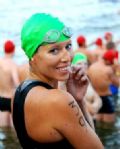|
"The word 'cancer' can spark fear of the unknown. Being able to continue to exercise and make healthy eating choices allowed me to feel as if I was able to maintain some semblance of control despite my diagnosis." Out of every 10 adult women, roughly six are overweight or obese. Many of them start down the long and crowded path to weight loss, navigating bumps and obstacles along the way. But for the 12 percent of women who develop invasive breast cancer, the journey is even rockier. With that single, life-altering diagnosis, worries about pounds and inches take a backseat to biopsies and blood counts, scans and surgeries. Suddenly, skinny pales in comparison to survival. That said, health and fitness can be powerful deterrents against breast cancer, and effective weapons in the fight against the disease. "Studies continue to show that a healthy diet and regular exercise can help prevent breast cancer,” says Ted James, MD, board member of the American Cancer Society. "Studies also show that women who are healthy tend to tolerate breast cancer therapy better and may be at lower risk for developing recurrent disease after treatment." Nutrition & Fitness for Breast Cancer PatientsThe benefits go beyond the physical. Dr. Samuel Malloy, medical director at Dr Felix, points out that regular exercise can significantly improve the mental well-being of those fighting breast cancer. "Patients with breast cancer often suffer from depression, anxiety and pain," he says. "Exercise releases endorphins and other bodily chemicals, which are known to have positive effects on pain and mood regulation." Arlene Matlick, a 24-year breast cancer survivor and a director of SHARE Cancer Support, found that her energy levels weren’t the same as they had been pre-diagnosis. "Remember that this is temporary," Matlick says. "Exercise when you can, but don't push if you don't feel up to it. Go for a walk instead, even if it's brief. A nap is not a failure, but an important restorative." Any amount of movement can help alleviate side effects from treatment, which can include fatigue, decreased range of motion and overall weakness. Matlick points out that a cancer patient's appetite will be in uncharted territory. "Your favorite foods might move to your 'no way' list," she warns. "Again, this is temporary. Try to eat healthy foods, but allow yourself to enjoy what makes you feel better. Listen to your body. Healthy snacks are good. Carry them with you." She also stresses the importance of hydration in lessening side effects during treatment. Mindful eating is always important, but even more so during cancer treatment. “It’s important to maintain a healthy weight to decrease insulin and inflammation in your body, both of which fuel cancer. When you eat mindfully, you end up eating less because you are paying attention and not mindlessly consuming calories,” says Dr. Sharon Stills, a naturopathic medical doctor specializing in the treatment of women dealing with breast cancer. “Sit down, chew your food, turn off the TV, hide your cell phone—be present with your food so it can nourish your body better. When you’re 3/4 of the way full, stop eating and wait 20 minutes. If you’re still hungry, eat more, but chances are you won’t be.” Food sensitivities are also a concern during treatment. Dr. Stills points out that the immune system can even be sensitive to healthy foods, like broccoli or almonds. “Having your blood tested and avoiding those foods for a period of time allows your immune system to fight against cancer cells where it is needed and not be diverted by offending foods,” she says. Real Stories of Fighting Breast Cancer with FitnessAt SparkPeople, we're honored that women in all stages of the disease—from the day of diagnosis to several years into remission—use our message boards to share support, tips and motivation. "As a medical professional who has lost family members to cancer, I can't underestimate the value of community support," says Dr. Malloy. To do our part for Breast Cancer Awareness Month, we’re shining the spotlight on five incredibly strong SparkPeople members who looked cancer in the eye and said “Not today.” We applaud the courageous women who share their stories as vehicles of knowledge, inspiration and hope. "My diagnosis has been an awakening to something I've known all along: I need to treat myself better and eat foods that will fuel my body." Maureen, _BACK2BASICS_, Diagnosed July 2011 I am both overwhelmed and thrilled to count myself as a survivor. One of the key dietary recommendations from my physicians was regarding alcohol consumption. My doctor informed me that there was a direct link between the amount of alcohol consumed and breast cancer. I was never really a big drinker, so it hasn't been a problem for me to limit. In my search for answers [after] I was initially diagnosed and making decisions about treatment, one of the books I read was 'Anticancer: A New Way of Life' by David Servan-Schreiber, MD, Ph.D. The book describes how cancer cells feed off of sugar. This description is etched in my mind, and one I try to revisit if I'm making less than stellar food choices. I was fortunate enough to be able to be treated with surgery and radiation and no chemotherapy. I believe there is a chance my cancer could have been much worse if I hadn't been exercising regularly and working toward being healthier. I believe the three most important nutritional items for me or anyone who is diagnosed with breast cancer is to cut down on the amount of sugar, reduce alcohol consumption and stay away from soy products. I would say the two most important exercise tips are to continue exercising each day when you can, no matter what. If your body is weakened from treatment, then cut down on the intensity. During my radiation, I was extremely fatigued. I had to walk rather than run. Since the word cancer can spark fear of the unknown, for me, being able to continue to exercise and make healthy eating choices allowed me to feel as if I was able to maintain some semblance of control despite my diagnosis. "I was fairly fit when I was diagnosed, which I'm sure helped me fight and survive this awful disease. A healthy lifestyle is so important to being a survivor!" Pam, SLIMPAM23, Diagnosed 2015 I finished chemo and radiation nine months ago and I'm currently cancer free. After treatment, my doctor and I talked about the importance of diet and exercise in remaining cancer free. During this battle, the focus on food and fitness took a backseat, simply because I was fighting to survive. While taking chemotherapy, eating can be a big issue, as the side effects vary with each person. I would advise anyone receiving treatment for breast cancer to choose healthy options when they are feeling their best, because when they are feeling their worst, they need to eat whatever appeals to them at that the time, and those might not be the healthiest choices. Loss of taste is a common side effect, and for most of the months I was taking chemo, I could only really taste three foods: Coke, chocolate and broccoli! So on the days when I felt the best, I tried to make healthier choices. It was hard to find the strength to exercise. Both chemotherapy and radiation made me feel weak and fatigued. I tried to make sure I walked enough each day (that I was able), because any exercise helped maintain my strength. Although I didn't maintain my normal exercise regimen during treatment, I tried to stay as active as I could. Getting enough sleep was also very important in maintaining my stamina. Once all the surgery and treatments were behind me, I jumped right back onto SparkPeople and made nutrition and fitness a priority. Now I'm more aware of how important it is to be fit so that I can maintain my health. "If the cancer returns, I'll have a strong, healthy body to use in fighting it off again. I am committed to wellness. I am a survivor." Carol, CARPROTH, diagnosed in 2010 After a routine mammogram in 2010, I was diagnosed with invasive ductal breast cancer. I had already stopped smoking, regained full movement after knee surgeries and even gotten my husband off the couch and going to the gym with me. I was not about to let this stop me in my tracks. I had a lumpectomy to remove the tumor, underwent radiation and started a five-year regimen of oral chemotherapy. The SparkPeople Breast Cancer Survivors team was a lifeline of support from others who had made the same journey. Whatever was happening in my body, someone on the team had already gone through and was willing to offer information about what had and had not worked for them. The side effects from the chemo were devastating—lack of energy, bruising at the slightest touch, pain in my joints and bones, and 25 pounds that came back and settled on my aching hips. Through it all, I concentrated on continuing to improve my diet and exercising to help regain range of motion in my upper body. The SparkPeople exercise videos helped by offering modified stretching and strength moves. During and after breast cancer treatment, many women shy away from vigorous upper body exercise, but it's more important than ever to focus on that area. Medical studies show that women who use their upper bodies retain better range of motion and develop less lymphedema that those who “take it easy”. At the suggestion of a SparkBuddy, I started yoga and tai chi classes to help with both physical and mental well being. I learned of a dragon boat team comprised totally of breast cancer survivors. I had never been part of an athletic team, but SparkPeople had shown me the positive results that could be achieved through group support and encouragement. Since joining, I have competed at regattas, won medals and been elected captain. Probably the most important nutrition tip for breast cancer patients is to eat real food—don't rely on pills or supplements to nourish your body. Also, eat to stay strong. Your body will need protein and fats, so don't skimp on those because you still want to lose weight. I just had my six-year mammogram and am cancer-free. I know that you're never "cured," but the malignancy can be kept dormant, and I intend to put it to sleep and keep it from ever waking up again. I still use the SparkPeople trackers to monitor my eating and exercise, and have lost all but 10 of the pounds I regained during treatment. My breast cancer diagnosis was a real wake-up call. I decided not to let it define me or limit what I could do with my life, and instead focused on wellness, both physical and emotional. "Know your body and don't settle." Kelly, KELLYPAQ, diagnosed in January 2009 Prior to cancer, I worked out regularly (weights, elliptical machine and walking) and ate better than most of my friends. I've never smoked and I rarely drink. Even with my healthy lifestyle, I still got cancer! My doctor pointed out how well my body responded to chemo and radiation, that I had very few side effects and that I didn't get sick, in spite of being a kindergarten teacher. She felt that I did so well because I had taken good care of myself prior to cancer. While I don't recall anyone giving me information about what to eat or not to eat, I always thought I ate healthy, but I think that was more my fantasy self than my actual self. Now, I try to eat foods that are as close to their original state as possible. Sure, I'll have a chip or a doughnut, but they are the exceptions to my eating plan, not a regular component. I've always known the importance of exercise. Again, my fantasy self would run marathons, but my actual self would meander around the block or pick up a weight once a week. My oncologist stressed the importance of remaining active. Because of the nature of my surgery, I wasn't able to lift weights or participate in high-impact activities, but I could go for walks. Once I was cleared to work out again, I joined Jazzercise and have continued my walks. "Don't give up on yourself and curl into a ball on the couch. It's okay to feel terrible one afternoon, but the next day is a new day. The body needs exercise." Dori, MNDIXIE1, diagnosed in 2007 When I was diagnosed at age 55, I had just achieved some personal fitness goals, so I was shocked and angry that cancer had visited me. There is no other history of breast cancer in our family. After completing lumpectomy surgery, chemotherapy and radiation, I tried to follow medical advice about how to stay healthy. During treatments, the nurses wanted me to eat for recovery. This meant boosting the vitamin D, eating more antioxidant-laden vegetables with less red meat, and avoiding white sugar. Cancer treatment affects each person differently, but in general I would say that maintaining good nutrition is really important. Even if you don't have an appetite, you should fuel the immune system to encourage the body to fight back and tolerate the chemotherapy. Through the worst of it, I'd rely on things like hot chocolate, oatmeal or peanut butter on toast. On the days when food sounded good, it would be fruit, green vegetables, chicken and fish. The healthcare workers usually say to not try and be a hero during treatment—go ahead and have ice cream if nothing else sounds good—but intentionally eating lean and nutritionally sound food usually helps you feel better and weather the side effects. Some people can handle rigorous exercise regimens during treatment, while others can just do a slow walk around the neighborhood. Either way, movement usually makes one feel better, even if fatigue slows down regular exercise habits. Psychologically, it's important to know that the body can still move, that the feet and legs and arms still need a workout even if the breast area is sore, and that exercise benefits the whole person. Breast cancer was a sudden jolt to my life. It has encouraged me to not let a day go by without being conscious of what I do, whether relaxing or working intently. I won't be perfect, but each day I will set wellness goals for myself. Health is critical to a happy life, and I don't take it for granted." 3 Effective Exercises for Breast Cancer PatientsResearch shows that patients benefit from exercise and movement during treatment, but that’s not always as easy to do as it was before chemotherapy. Karen Hock, a physical therapist at The Ohio State University Comprehensive Cancer Center, helps breast cancer patients resume the activities they love as quickly as possible with these three exercises. While they may appear simple, even something as “easy” as lifting your arms above your head can cause a lot of strain after breast cancer treatment. Vertical hand slides: Stand beside a wall with the side of your hand on the wall and your arm at a 90-degree angle. Slowly slide your hand up and down the wall, feeling the stretch in the area around the breast. 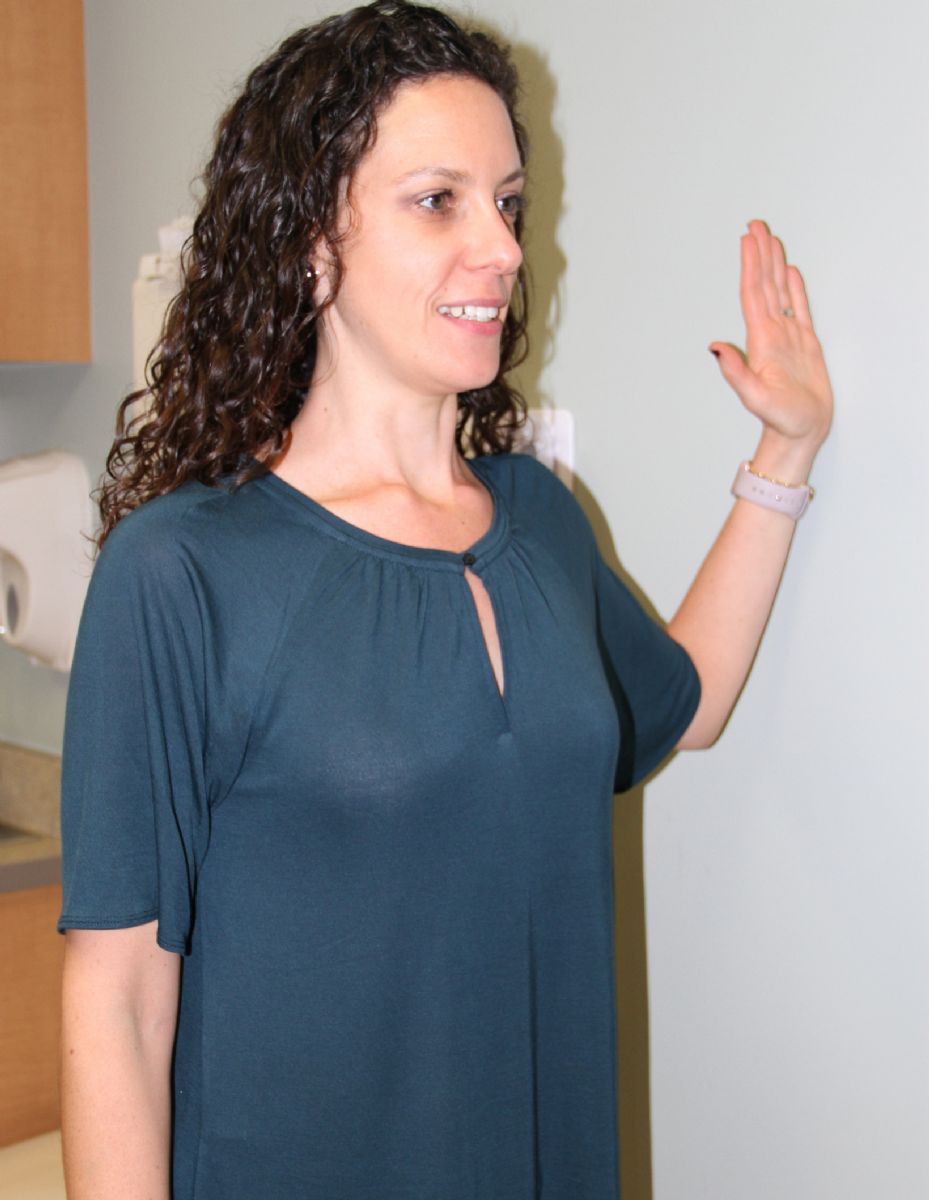 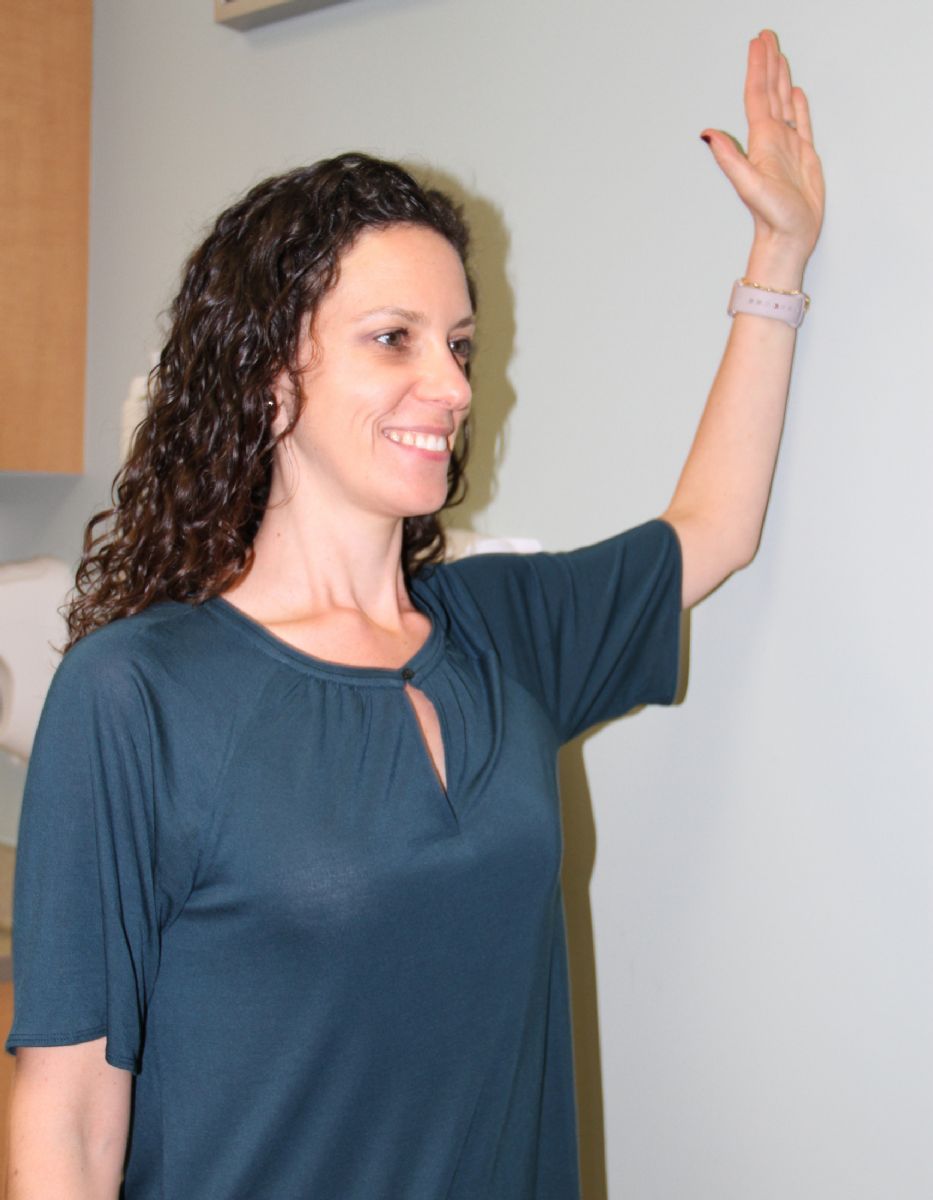 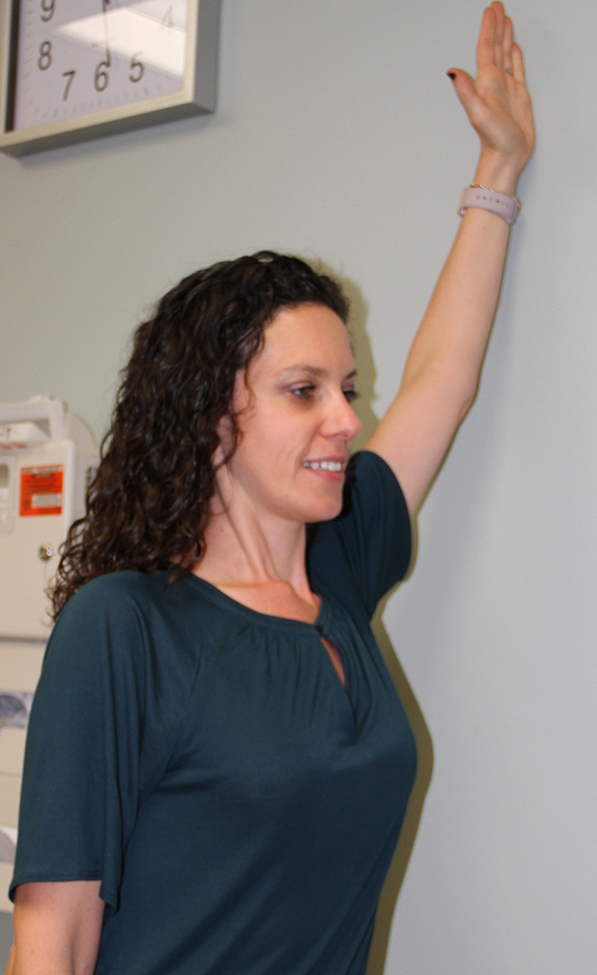 Counter balance stance: Using a rolled up towel, stand at your kitchen counter with your arms extended out to your side. Slowly lift one leg at a time and hold it, practicing your balance. 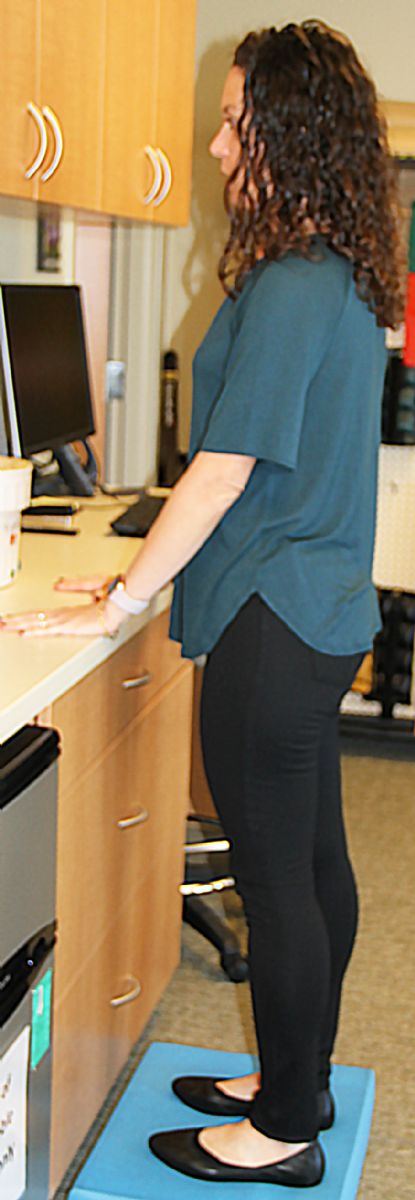 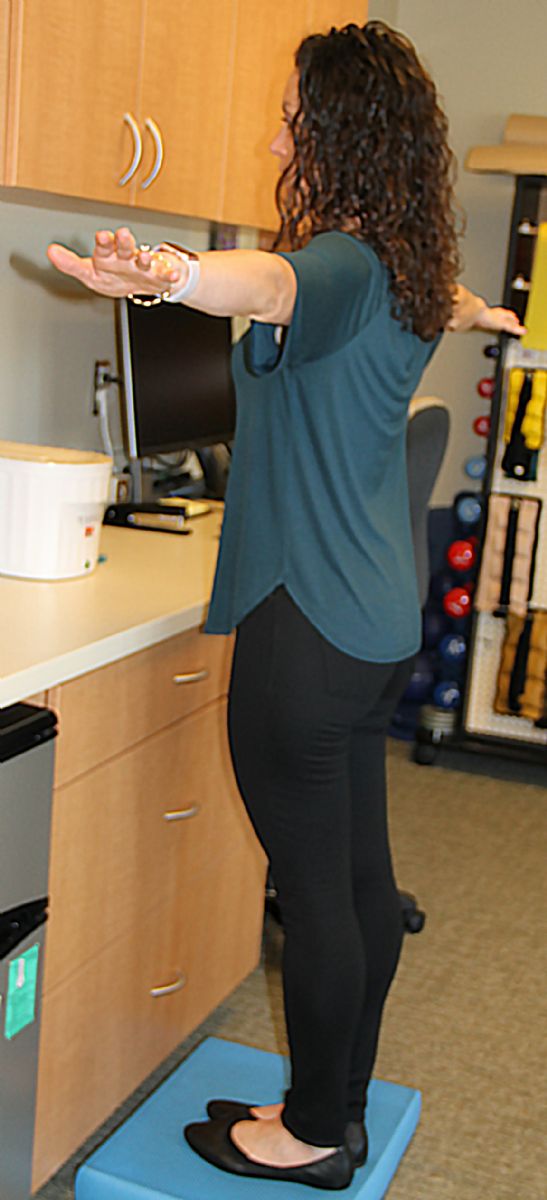 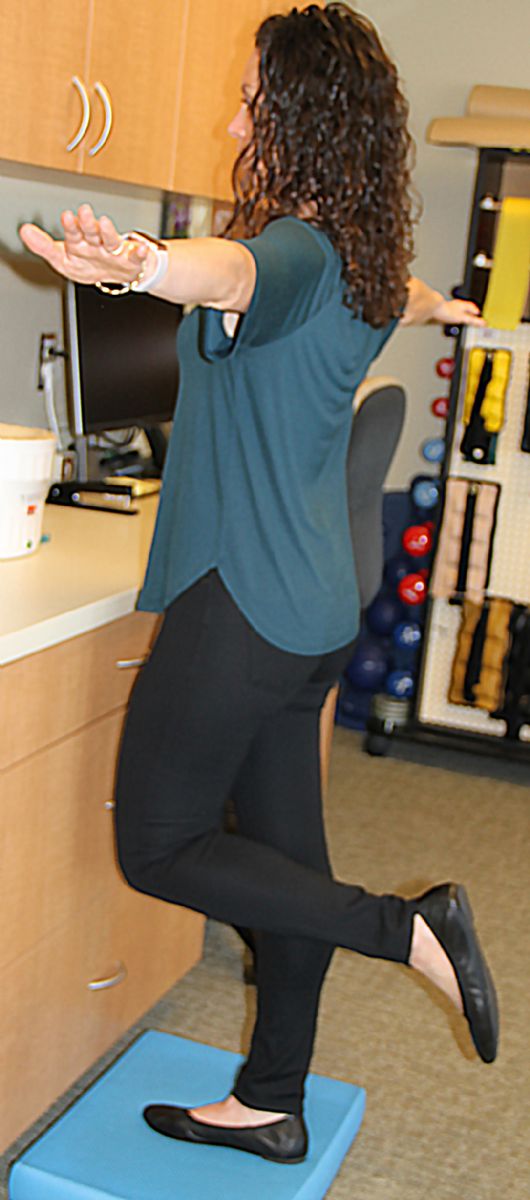 Exercise ball arm raises: Sit on an exercise ball with small dumbbells in both hands. Move one hand to the opposite side of the body while in the resting position, then lift it diagonally above your head. This will help stretch the area around the breast and strengthen your arms. 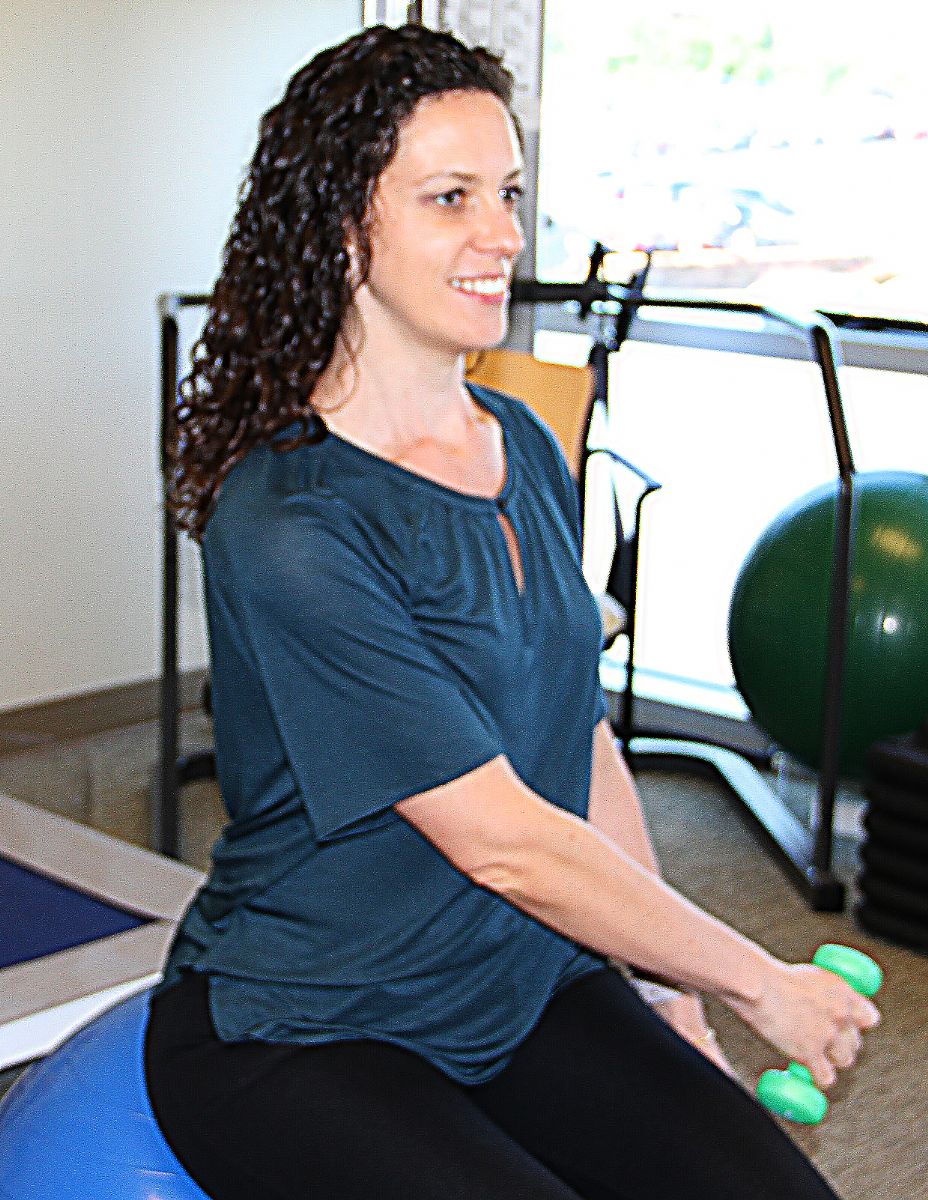 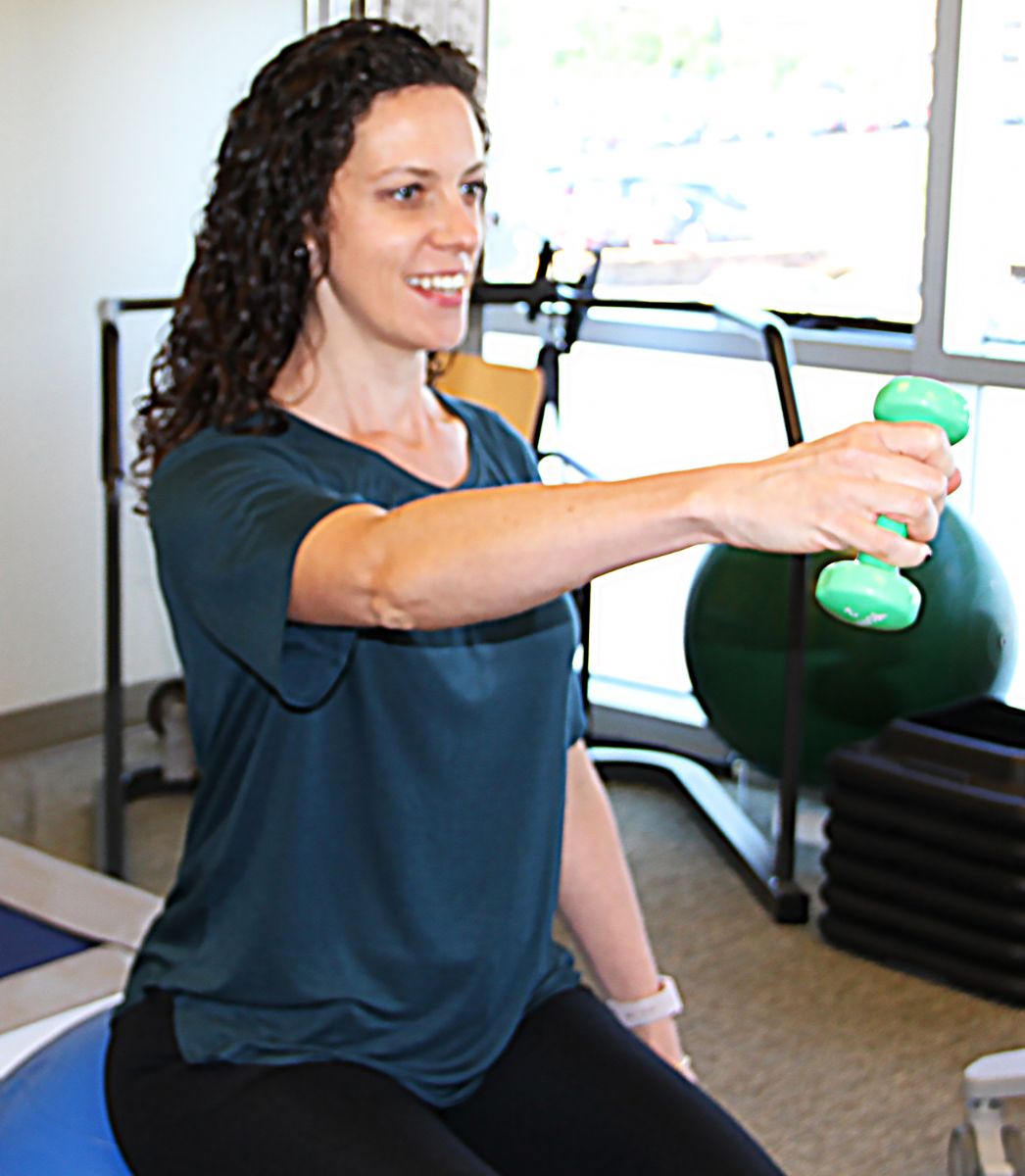 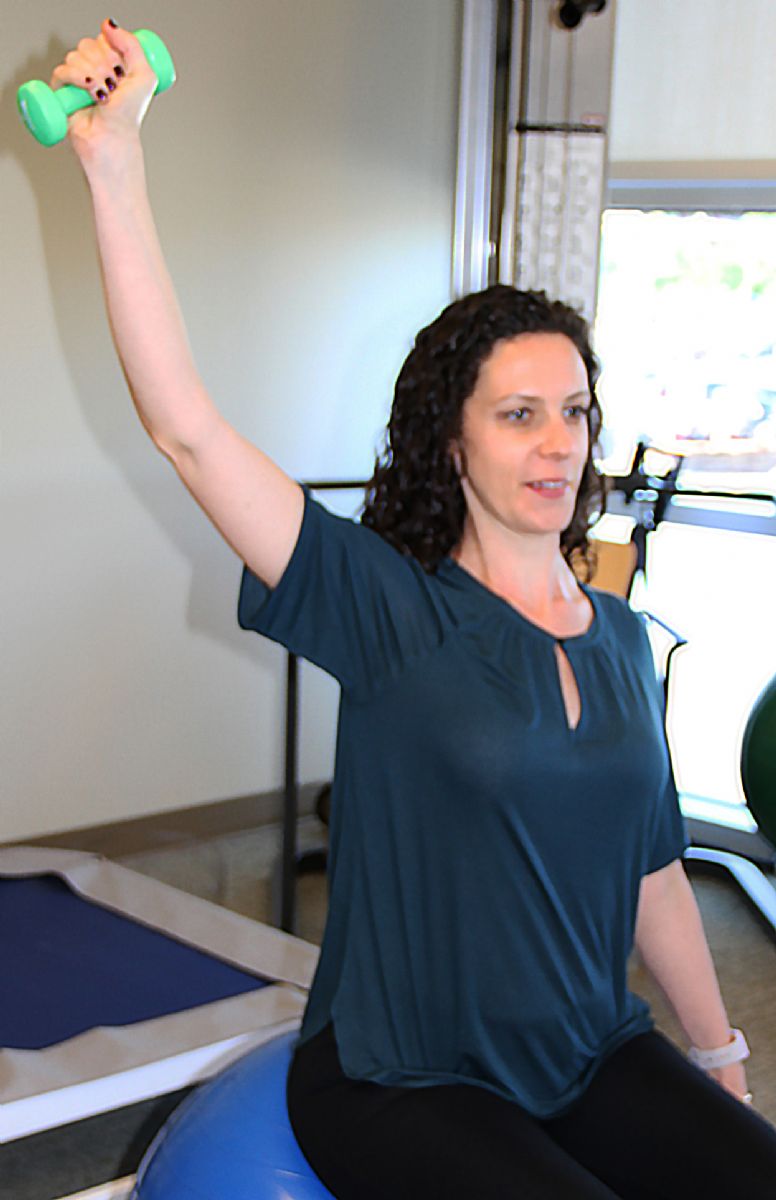 Health as a Survival ToolAccording to the American Cancer Society, the risk of developing or dying from breast cancer can be greatly reduced by adopting some simple healthy habits. Many of the values we advocate—including getting 150 minutes of moderate intensity exercise each week, limiting sedentary time, avoiding excess weight gain and opting for healthy foods most of the time—could play an even bigger role in your quality of life than you realize. Visit their site for tips on healthy weight management, physical activity and nutrition. Ultimately, every breast cancer journey is a unique and personal one, but healthy eating and exercise are effective weapons for all fighters. If you’ve been diagnosed, consider scheduling a consultation with a nutritionist or dietitian as well as a fitness trainer to design a wellness program suited to your needs. |




